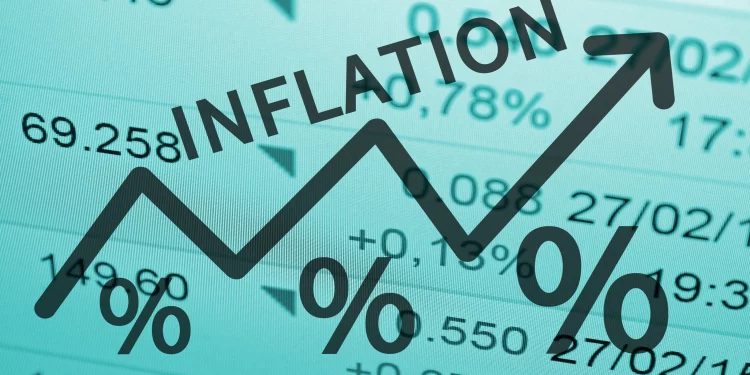Ghana’s battle with stubbornly high inflation continues to pose challenges for policymakers, deterring them from implementing much-needed monetary policy easing measures. Fitch Solutions, a renowned financial research firm, warns that inflationary pressures will remain uncomfortably high throughout the second quarter of 2023, casting doubt on the possibility of loosening monetary policy at the upcoming Monetary Policy Committee (MPC) meeting in July.
The recent introduction of higher taxes and upward adjustments to electricity tariffs are expected to exacerbate consumer price growth, impeding the disinflation process. These factors combined suggest that Ghana’s inflation trajectory is poised to deviate from historical levels, with 2023 likely witnessing the highest average inflation rate in 28 years.
Persistently High Inflation
As of April 2023, Ghana’s inflation rate stands at a significant 41.2%. Fitch Solutions forecasts that inflation will continue to hover at elevated levels, averaging 35.5% throughout the year. This worrisome trend poses substantial challenges for the economy, potentially hindering investment, dampening consumer purchasing power, and impeding long-term economic stability.
Impact of Tax Hikes and Electricity Tariff Adjustments: Fitch Solutions identifies the recent introduction of higher taxes, including the hike in value-added tax from 12.5% to 15.0%, as a key driver behind rising consumer prices.
These tax adjustments are expected to further slow down the disinflation process, compounding the challenges faced by policymakers. Moreover, Ghana’s Public Utilities Regulatory Commission has implemented upward adjustments to electricity tariffs, resulting in an 18.4% year-on-year increase in Q2 2023. This move is likely to moderate the pace of disinflation in the coming months, exacerbating the already elevated consumer price growth.
Disclaimer: Ahotoronline.com is not liable for any damages resulting from the use of this information
Norvan Reports





